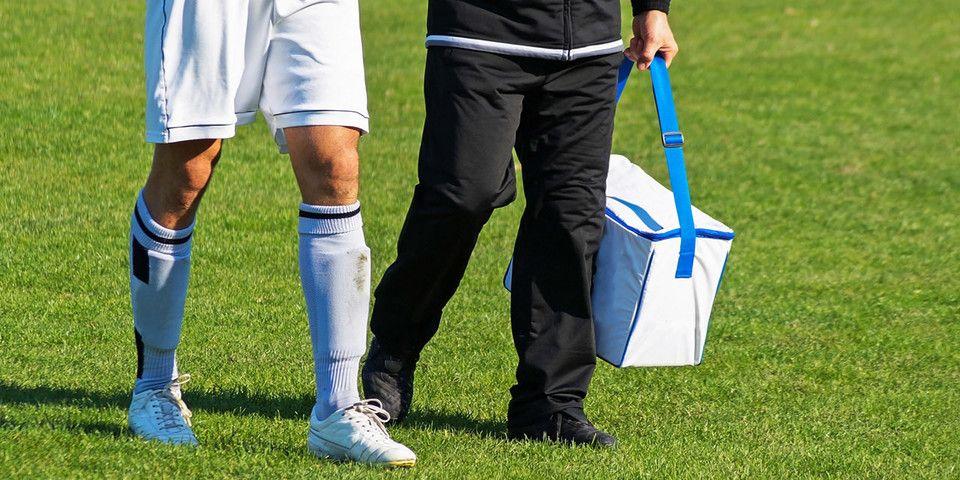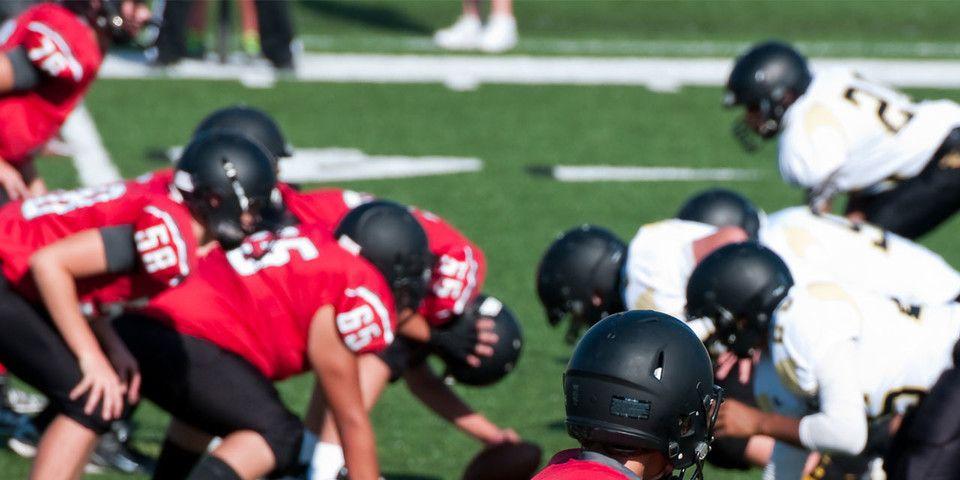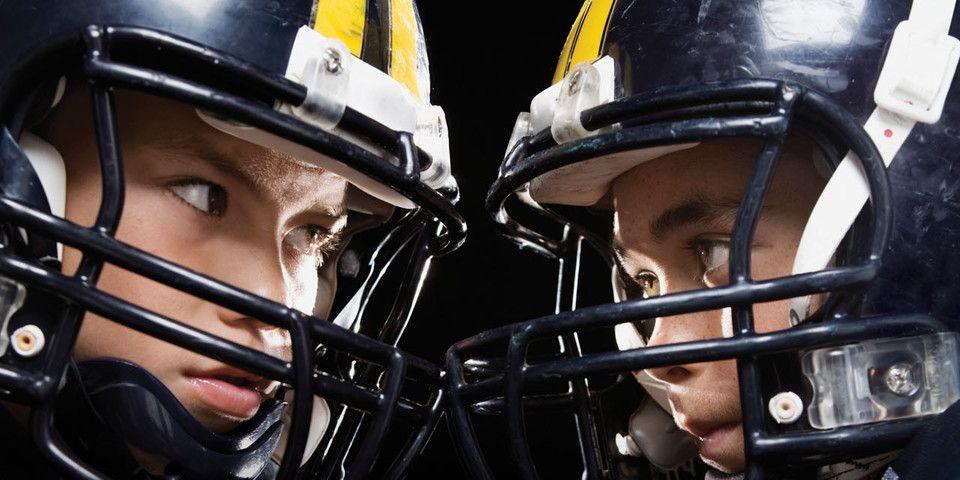Causes of Football Injuries and How to Prevent Them
Learn how to avoid football injuries with proper preparation and routine.
Sports-related injuries comprise a significant number of the injuries treated by physicians at Rothman Orthopaedic Institute. Of the sports played by our patients, football remains the leading cause of sports injuries; in 2012 for example, over 460,000 patients were treated for football-related injuries in emergency rooms across the U.S.
The high number of football-related injuries that Rothman physicians see each year has made it clear that the best way to avoid them is to know the causes of football injuries, and know how to properly prepare so as to prevent them happening in the first place.
With the proper routine and appropriate preparation before athletic activities, football-related injuries can largely be avoided. In order to understand how to best prevent football sports injuries, we should first investigate the causes of football injuries, and the various types of common football injuries that athletes most often experience.
Common types and Causes of Football Injuries
Injuries during football games occur as a result of the dangerous combination of full contact and high speed running. There are a wide range of possible causes, from sudden trauma and concussion to overuse and heatstroke.
Sudden Trauma
Of all the potential causes of injury, sudden trauma remains the most prominent reason football players suffer injury. Instances of sudden trauma most often result in knee injuries, especially involving severe tears of the Posterior or Anterior cruciate ligaments (PCL or ACL). Additionally, the cartilage of the knee is a common locale for serious injury, wherein the meniscus can be severely damaged if traumatized. In addition to knee and foot injuries, shoulder injuries are common as well; the cartilage lining the socket of the shoulder is especially vulnerable in defensive and offensive linemen.
Concussion
Concussions, specifically trauma to the head that results in a change in a patient’s mental state, are extremely common in football, due to the frequency of full contact collisions. Concussions remain a more difficult type of injury, as the patient will have to return to full health with no symptoms before being allowed to return to regular play.
Overuse
The general principles behind wear-and-tear injuries stem from overusing a particular part of a football player’s body without proper exercise or physical therapy. Additionally, players experiencing overuse injuries are likely to report symptoms of overtraining syndrome, wherein a patient will have trained too strenuously and be unable to properly recover from routine exercise. A common result of overuse injury is the development of tendinitis in the knee.
Heat
Poor hydration habits commonly pair with cases of overheating to cause significant health problems, especially for young football players. In the right time of year, athletes will suffer even more if not properly hydrating, and can cause long-term problems for athletic endurance. In severe cases, bodily fluids may need to be replaced, without which a patient can suffer extreme heat stroke.
Preventing Football Injuries
Athletes can take a number of steps to prevent a football injury from taking place.
Often, causes of football injuries include making the mistake of not staying physically active during the off-season. For any athlete, maintaining a regular routine to keep the body active is paramount to preparing for the rigor of returning to regular play, no matter the sport. Additionally, regular warm-up and stretching regimens will make a tremendous difference in preparing the body for athletic activities. Most importantly, athletes should have excellent hydration habits, especially during colder months; it’s rare to feel as thirsty in cold climates, but the body still needs to be hydrated. In general, athletes should drink 24 ounces of a caffeine-free fluid roughly 2 hours before exercising, and 8 ounces of water every 20 minutes while exercising.
Rothman Orthopaedic Institute: The Reliable Orthopedic Choice
If you would like more information on the various causes of football injuries and how to properly prepare for them, or if you would like to arrange for an appointment, call Rothman Orthopaedic Institute today at 1-800-321-9999.
Related Physicians
Related Specialties
Related Programs
-

Athletic Training- Sport Medicine Outreach
Our Field Athletic Trainers provide direct sports medicine care to youth, high school, college and professional athletes. Rothman AT’s provide athletic training services throughout Southeastern PA to interscholastic high schools, colleges, as well as tournaments and special events.Read More -

Injury Prevention Program
The Injury Prevention Program at the Rothman Orthopaedic Institute is dedicated to the prevention of injuries from athletic participation, particularly youth sports.Read More -

Sports Concussion Program
Concussion care is a special focus of Rothman's sports medicine program. We've developed the most advanced multi-disciplinary evaluation and treatment techniques based on research done by the concussion specialists here at Rothman Orthopaedic Institute.Read More




